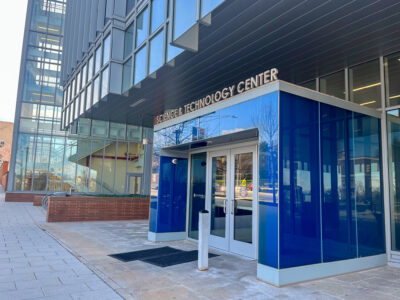Federal officials tried out a system Wednesday at a Maryland prison that is designed to block calls coming from inside prisons. The technology could be a tool in preventing the use of contraband cellphones.
According to a statement, the Federal Bureau of Prisons tested the “micro-jamming” technology at the Federal Correctional Institution in Cumberland. Officials wanted to test whether the system could jam a device in a specific cell.
The results of the test weren’t released, but officials said they review the data for planning and “possible acquisition.”
A more limited test was conducted in Cumberland in 2010, but there is renewed interest as the number of smuggled cell phones in prisons are increasing. Assistant Attorney General Beth Williams told the AP that 5,000 inmates were confiscated from inmates in 2016.
“Contraband cell phones in prisons pose a major and growing security threat to correctional officers, law enforcement officials, and the general public,” Williams said in a statement. “As criminals increase their technological capacity to further criminal activity from within prisons, we must also explore technologies to prevent this from happening. This test is part of our ongoing efforts to find a solution.”
Officials say they are concerned that the phones could be used to further criminal activity and intimidate witnesses.
Contraband has also been a concern at the state level. The illicit items factored into corruption scandals that were uncovered at Eastern Correctional Institution on the Eastern Shore last year and in Baltimore’s city jail in 2013. Along with phones, drugs were being smuggled into state prisons in both of those cases.
Tech tools have also been introduced that are designed to keep contraband out altogether. Earlier this year, the state spent $1.8 million on detectors to scan inmates for materials including cell phones.
However, those attempting to get the illicit goods into jail are also taking new approaches. In 2015, state officials caught a duo trying to fly goods into a Crespatown jail using a drone.
Join the conversation!
Find news, events, jobs and people who share your interests on Technical.ly's open community Slack

Baltimore daily roundup: Bowie State's esports reputation; AI impersonator arrested; EpiWatch names new CEO

Baltimore daily roundup: Real estate deal in the Peninsula; Missing $100M nitrile glove factory; Dirt bike clampdown

Baltimore daily roundup: Gen AI's software dev skills; UpSurge Tech Ecosystem Report; MD service year program


